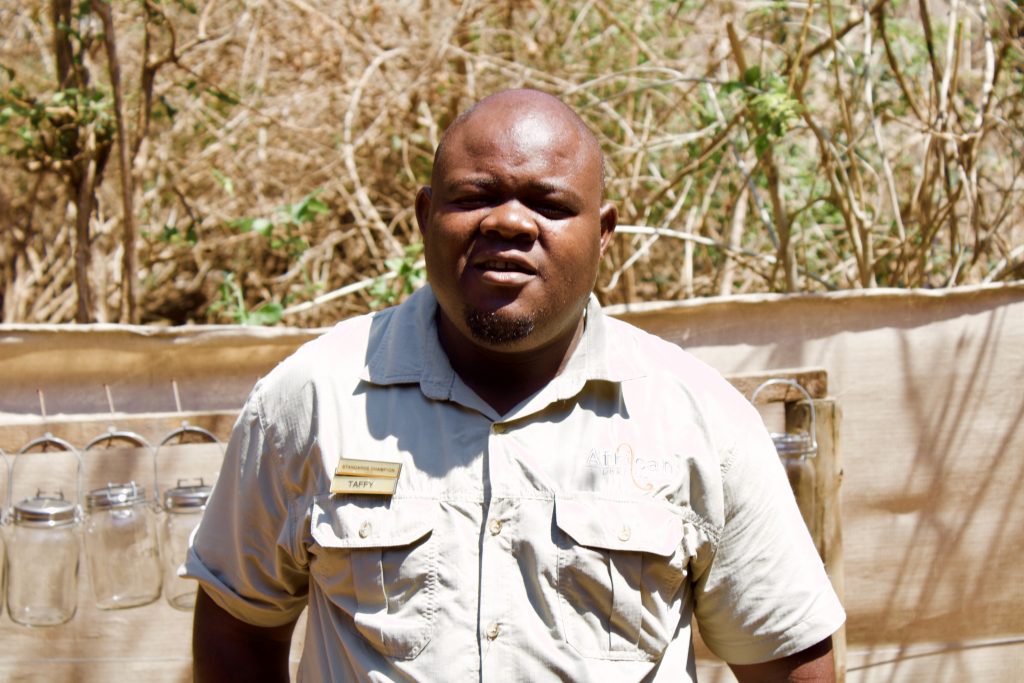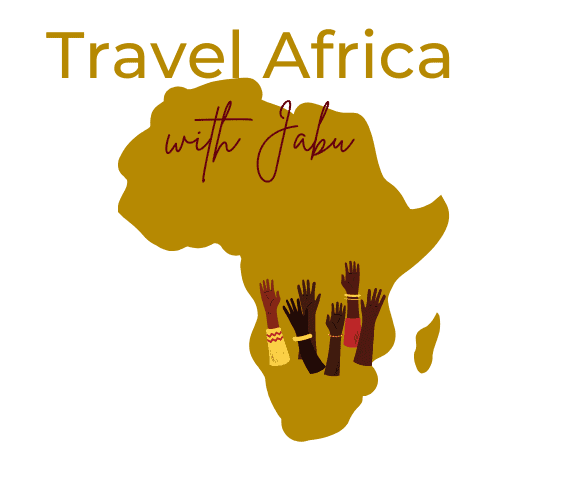Tafadzwa “Taffy” works 56 days in the bush taking two weeks after every work cycle to spend time with his family in Harare. Away from the oppressive heat, the dry air, and thicket that hides snakes, wild cats, hyenas and elephants he regales his wife, Grace, and two young children, Janade and Ianthe with stories of Kanga Pan and the camp overlooking it.

The Place of Chief Dandawa
“My wife will often say to me ‘I think you need to stop telling me about your work and let us do our own thing because when we sit down for lunch I’ll tell her about the elephants that come to the pan for and how they’ll come and drink and splash us with mud.”
Grace knows he can spend all day talking about his work and it is then that her husband, Taffy, realises he misses home.
“Kanga is where my heart is,” he says. “This is my home. I enjoy the family I have here.”
The camp host joined African Bush Camps in 2010 when building began for the camp. Back then it was a simple rustic residence for guests until it was upgraded in 2011. Taffy joined the construction team learning everything he could about the camp from plumbing, electrical wiring to cable placement. That year he joined the team as a waiter, a natural fit for someone who loves people and their varying worlds.
Kanga, he says, has a beautiful history. The name itself means guinea fowl after the ubiquitous crested guinea fowl that peck about in Mana Pools National Park. The guinea fowl have another name: “Bob Marleys” because of the tuft of feathers atop their head he explains.
“This place was once the home of Chief Dandawa and his three brothers.”
It’s mid-morning and the air is still, a small group of baboons sit on the muddy pan’s edge carefully watching the doves that have now become their prey.
“The people who used to stay here way back, the Kore Kore people, were moved out of the area when national parks decided to move animals here. They were driven out of the park.”
The chief gave himself the name Dandawa when he met his first wife next to a fallen tree.
“In Shona a fallen tree is danda rakawa,” Taffy explains. “Danda means tree and fallen is rakawa.”
As a young man the chief would patrol the area for hours in preparation for hunting and that’s when he met a young maiden in the middle of the bush next to a fallen tree. The Chief escorted the lady to her parents’ home where he introduced himself and the rest is history.
Taffy’s love for culture harkens to his days as a young boy accompanying his father, a construction worker who travelled the length and breadth of Zimbabwe. When the family finally settled in Kariba, he would spend his afternoons at the lake learning of birds and trees. During the school holidays he would visit his grandmother, his days spent herding cattle. It is these days that he knew he always wanted to stay close to nature.
